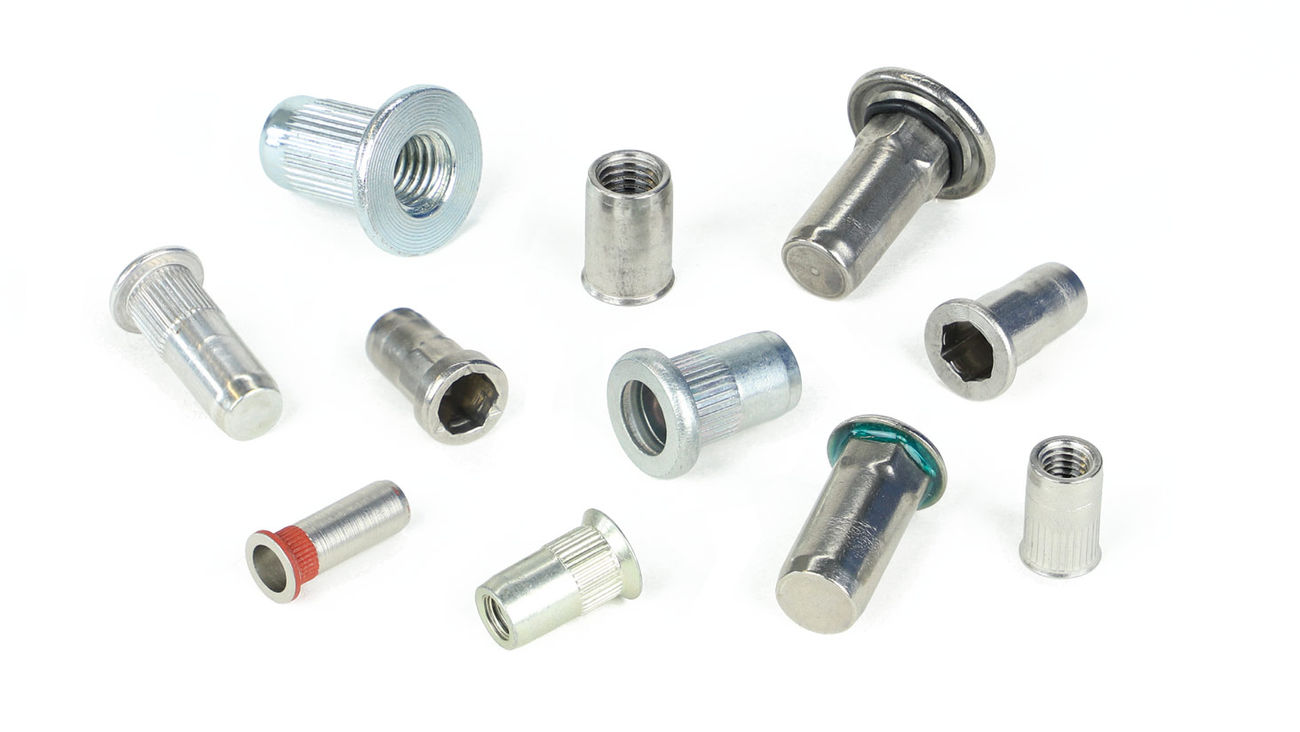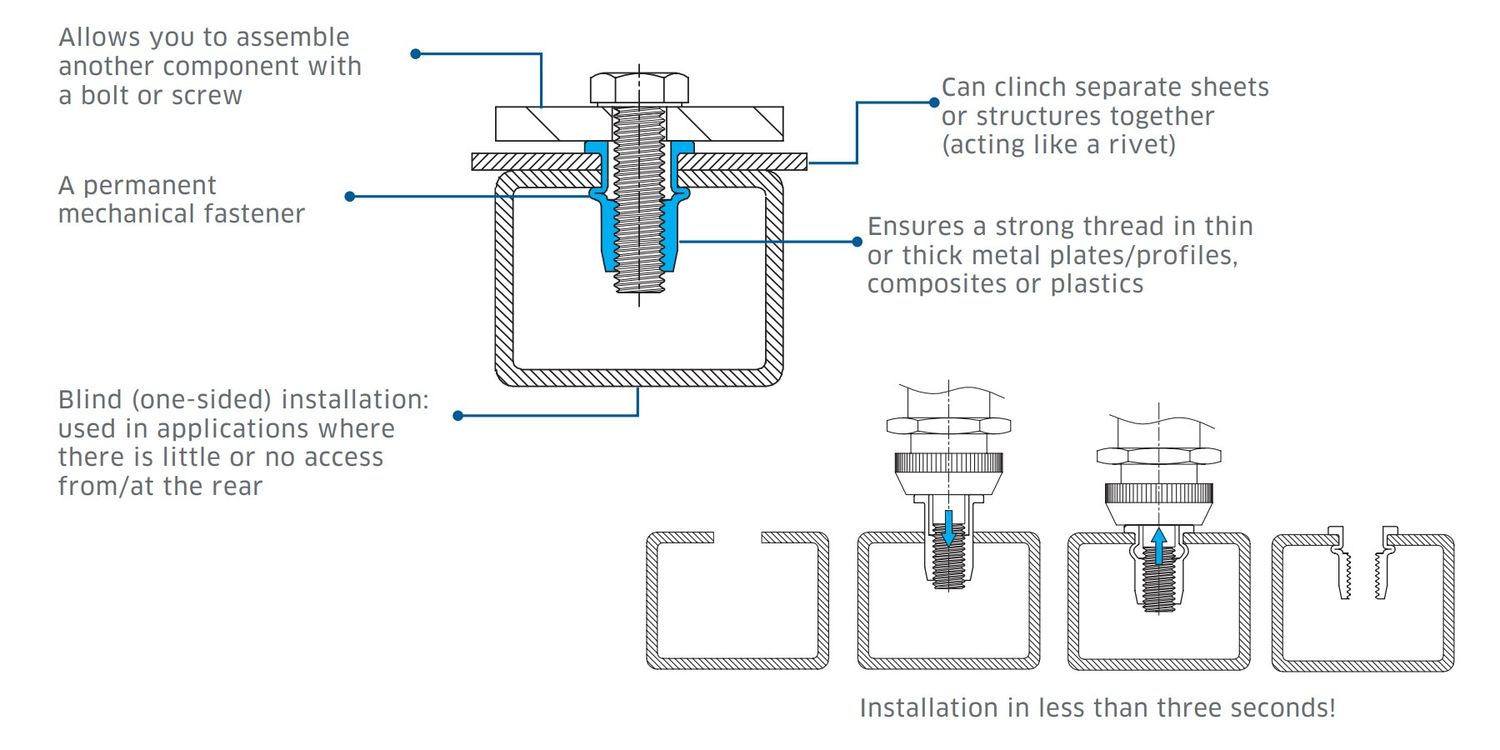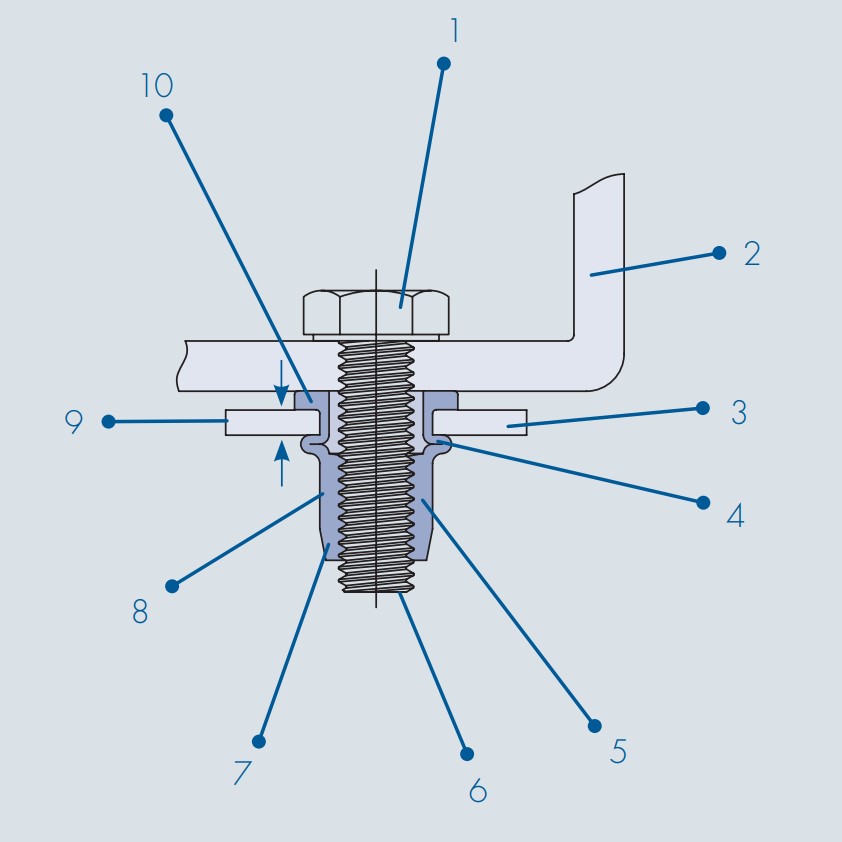Tubtara® is a mechanical fastener that ensures a strong thread in thin and thick metal plates or profiles, in composites or (engineered) plastics. It is ideal for applications where there is little or no access from/at the rear. It can clinch separate sheets or profiles together – acting as a rivet – and enables the (dis)assembly of a third component via a bolt or screw.
Benefits
10 reasons for choosing Tubtara® blind rivet nuts:
- Simple blind installation: applied from one side of the workpiece
- Low assembly cost versus other methods of installing threads in plates or profiles
- Fast, easy assembly: further reducing the assembly costs
- Zero-risk installation: no damage to the workpiece surface, enabling installation in pre-coated or pre- painted applications for a clean, undamaged thread
- No deformation of the workpiece
- No surface preparation required
- Ideal for close-to-edge applications
- Suitable for repeated assembly
- Retained fastener: cf. Machinery Directive 2006/42/EC
- Low installation cost: no expensive tools or applications
Applications
Tubtara® blind rivet nuts are used in all kinds of sheet metal, plastic and composite applications. They eliminate the need for tapping, welding or working with nuts and bolts. As such, they form an ideal solution for enclosed applications that can only be accessed from one side.
They are used in market segments such as:
- Aerospace
- Automotive
- White goods
- Electronics
- Metal furniture
- Railways
- Telecom
- Food
- Lighting
- Marine
- Offshore
- Medical
- etc.
e.g. cabinets, pipes, cable trays, leg levelling, window & door profiles, rails, benches, fences, metal enclosures, heating installations, air-conditioning, swimming pools, solar panels.
Terminology
- Screw or bolt inserted for assembly of another part
- Assembled part
- Workpiece: can be one sheet/profile or several sheets which require clinching
- Bulb or counter head: the chamber (unthreaded section) is deformed during setting
- Strong, secure internal thread
- Open or closed end: closed-end version prevents the ingress of dirt and fluids, especially in combination with an underhead seal
- Chamfer: guides the Tubtara® into the hole
- Shank: round, full- or semi-hexagonal, knurled or splined version
- Grip
- Head: flat, countersunk, low profile, watertight, anti-turn head or customised head type


